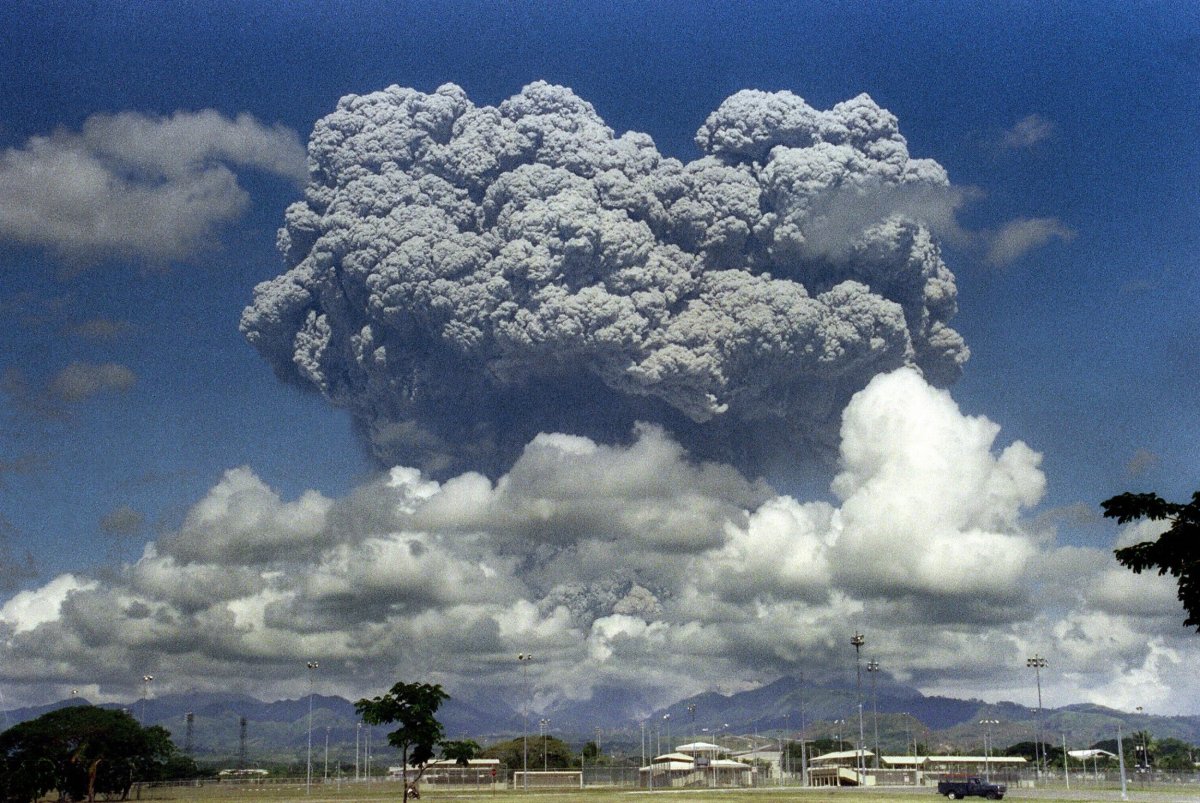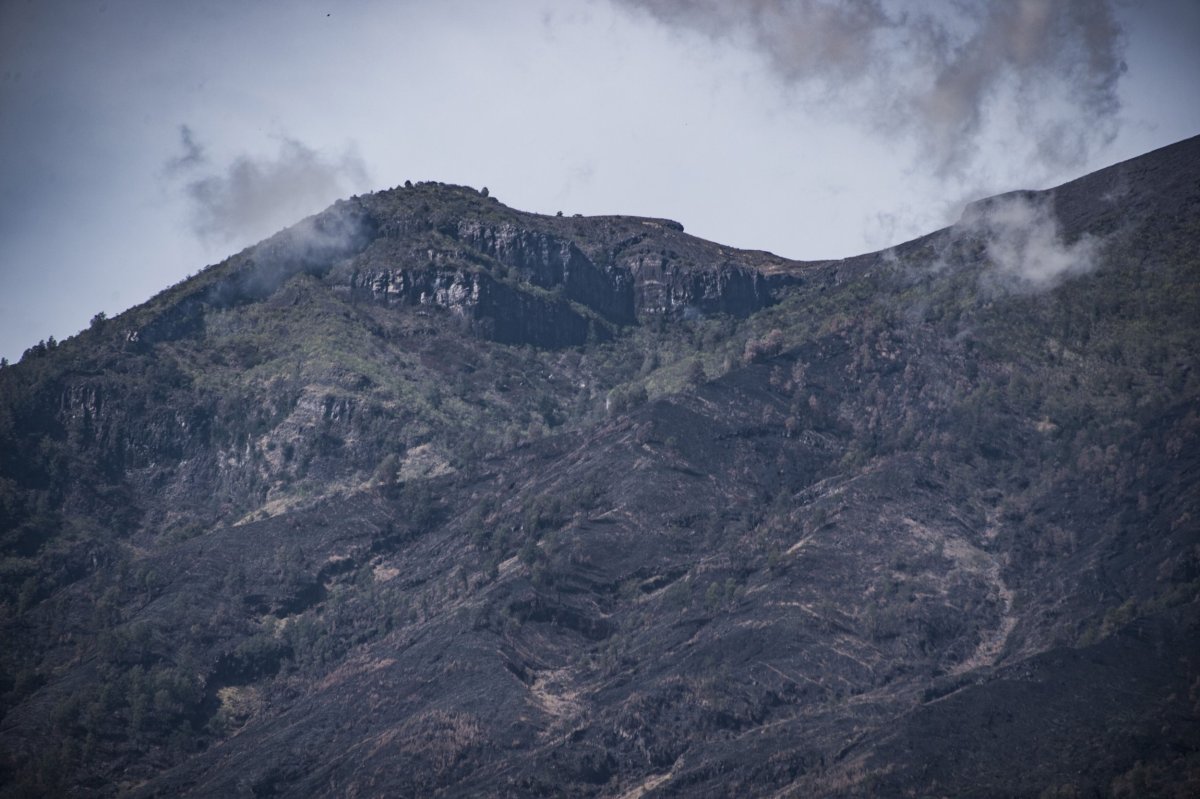It's counterintuitive to imagine that any event spewing molten rock more than 1,000 degrees Fahrenheit could make anything cooler, yet that's precisely what volcanic eruptions do. But because volcanoes are unpredictable, that impact isn't accounted for in the models of climate change we use to make decisions about carbon emissions and to set goals for mitigation—in fact, this omission is one of the biggest gaps in those models.
A new paper in the journal Nature Climate Change attempts to solve the puzzle by modeling 60 different volcano scenarios and how they will impact climate. The results suggest that eruptions will likely play a role in modulating climate change over the next hundred years. But there's no reason to expect the impact will be enough to neutralize our carbon emissions.
Large volcanic eruptions can cool the planet because they release aerosols, tiny particles of ash and chemicals. Aerosols can reflect some sunlight away themselves, and they also act as the seeds around which clouds—which can also bounce sunlight away from Earth's surface—grow.
The past century or so has been relatively quiet, volcanically speaking, but there still were examples of eruptions that were violent enough and produced enough aerosols to cool the planet. Most notorious was the eruption of Mt. Pinatubo in the Philippines in 1991, which cooled Earth by about one degree Fahrenheit for two years.

Eruptions can't be predicted, so the researchers took a different approach, modeling out a hundred different possible scenarios for the next century. They chose those scenarios by studying volcanic activity over the past 2,500 years—a total of 283 eruptions that produced enough of an aerosol called sulfate to see in ice cores. Then they shuffled up those eruptions to get 60 possible futures, from an unusually quiet century to one full of volcanic activity.
According to the calculations, volcanoes play a surprisingly big role in planetary temperatures. "We were surprised about the sheer magnitude of the effect, about how much it made a difference to include plausible volcanic activity in our future climate simulations," the study's co-authors, Ingo Bethke of the Bjerkenes Center for Climate Research in Norway, and Peter Thorne of the National University of Ireland Maynooth, told Newsweek in an email. They added that they focused on "plausible 21st century futures" to try to understand the real picture of climate change risks and adaptation.
That's a particularly compelling question now, as volcano scientists watch Mount Agung in Bali, Indonesia, for a potential eruption. The last time the volcano erupted, it was powerful enough to affect climate, but there's no way to know right now if the next eruption will also do so, the co-authors wrote.

And because volcanic eruptions are completely unpredictable, there's no real way to estimate which of the study's scenarios is likeliest—or how much cooling we might be able to bank on. For Alan Robock, a climate scientist at Rutgers University not affiliated with this study, that makes this paper not particularly helpful. "It reminds us that there will be volcanic eruptions in the future, and that they will cause climate change," he wrote in an email. "But we already knew this."
For the study's co-authors, what stands out is the increased variability and unpredictability we can expect in climate due to eruptions. Not only will eruptions not cool enough to cancel out global warming, but they could require additional adaptation efforts of their own, the scientists wrote. That means just one more question about what the future holds.
Uncommon Knowledge
Newsweek is committed to challenging conventional wisdom and finding connections in the search for common ground.
Newsweek is committed to challenging conventional wisdom and finding connections in the search for common ground.
About the writer
Meghan Bartels is a science journalist based in New York City who covers the science happening on the surface of ... Read more
To read how Newsweek uses AI as a newsroom tool, Click here.








